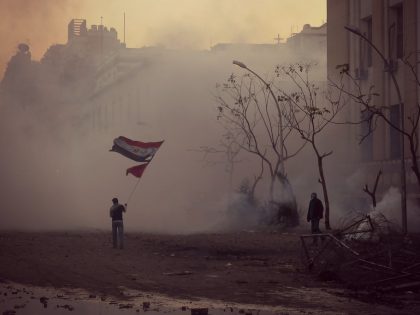
The life and times of Trevor Madondo
Trevor Madondo achieved a certain immortality in Zimbabwean cricketing lore precisely for the way in which he confronted cricket’s history as an instrument of empire.


Trevor Madondo achieved a certain immortality in Zimbabwean cricketing lore precisely for the way in which he confronted cricket’s history as an instrument of empire.

For the peripheries and proletarians of the world—most of the world—Maradona is a symbol of defiance against the football aristocracy, corporate bosses and empire itself.


The Liverpool striker, Sadio Mane, carries the values of his boyhood home, Bambali, with him. But his football is a product of the European professional game.

What can the Senegalese Sadio Mane’s story tell us about the marketing of dreams.

A new documentary about Liverpool FC striker, Sadio Mane, is watchable, but suffers from the fallacy that sports and politics don’t mix.

Raja Casablanca's fan clubs are well organized, politically active and occasionally violent.

Recreational soccer in New York City offers significant social, cultural, and sometimes economic support for the city's working class African immigrants.

The author of a book on football and revolution in Egypt gives us a list of must reads on football in the Middle East and North Africa.

What the recent World Rugby Sevens Series global championship reveals about national rugby cultures, particularly South Africa's.

Football historian and broadcaster David Goldblatt’s new, encyclopedic book of football opens with a chapter on Africa. Here we republish an excerpt.

Zimbabwe’s national football was under black control decades before independence—but the colonial legacy of racial segregation still haunts.

More and more footballers, many from Africa, are openly displaying their religious beliefs on the fields of Europe's top leagues.

Reflecting on white joy, black celebration, and the meaning of the Springbok win at the 2019 Rugby World Cup.

We should not let the achievements of a multiracial Springbok rugby team, led by its first black captain, be commodified and commercialized in the service of neoliberalism.

The late Springbok rugby wing's legacy needs to be sustained, and the hope that he represented is perhaps more critical than ever.

The guardians of women's femininity and virtue and their use of public space come up against a women's football team in the Sudanese capital.

The fate of Cameroon's women's national football team, like much else in the country, is a reflection of the sorry state of its politics.

The compromises and conciliations of South African rugby mirror the unfinished transition from apartheid racism in the broader society.

What does the divergent fates of Springbok Eben Etzebeth and former coach Peter de Villiers say about the state of South African rugby?